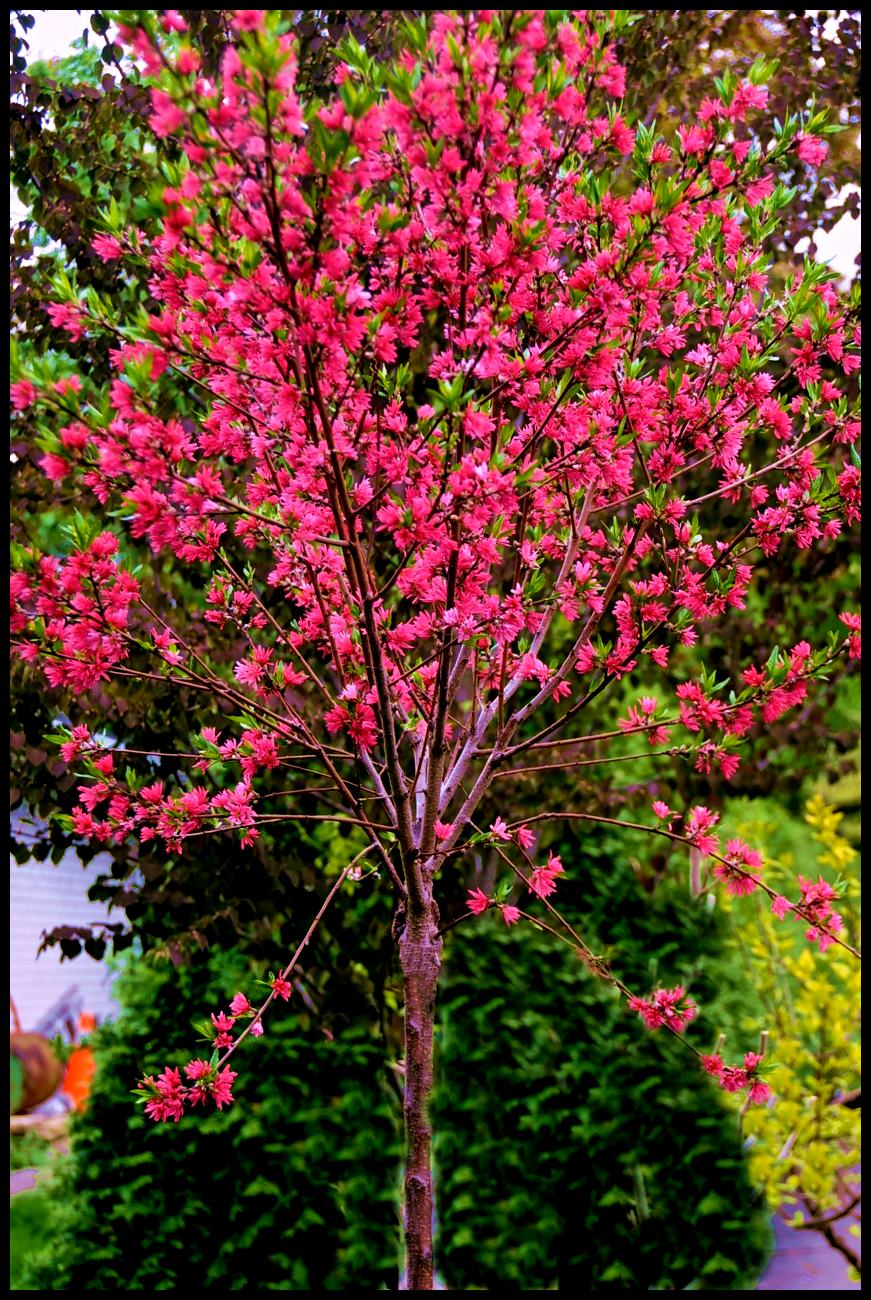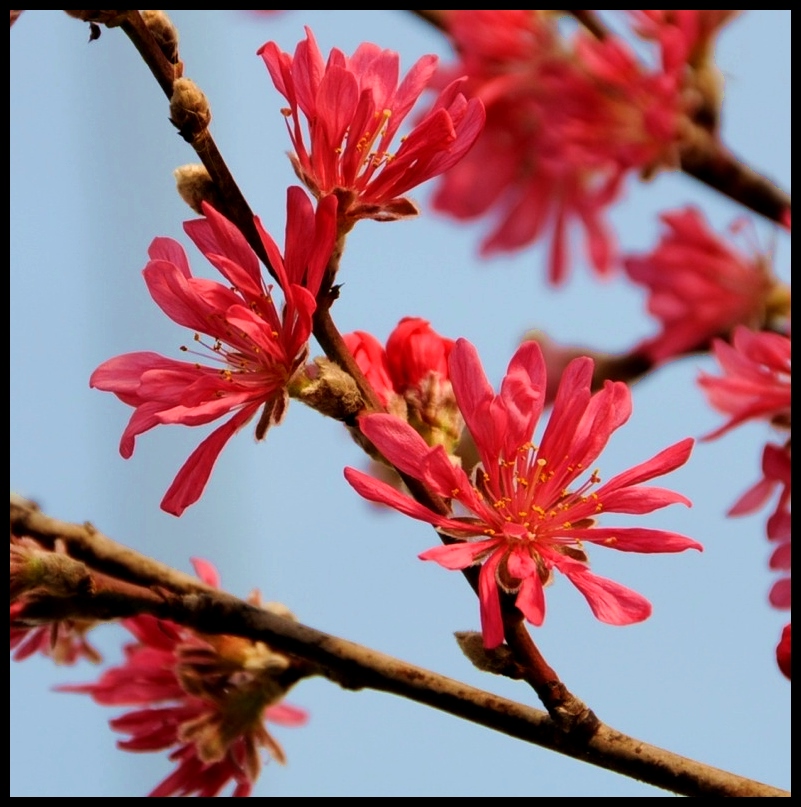Plant of the Month for August, 2013

(PROO-nus PER-see-kuh)
General Information:
Prunus ‘Marion Jarvie’ has a mysterious past. Around 1997, a well known Toronto gardener, Marion Jarvie, obtained a small rooted cutting from Japan. The cutting grew into a fine specimen tree which produced a very unusual flower display. The colour is very bright and the petals are narrow, more like a Magnolia 'Royal Star'. It became the highlight in Marion’s spring garden.


Prunus ‘Marion Jarvie’; photo by Marion Jarvie
The original cutting did not have a name. The best guess is that it belongs to the species Prunus persica, a peach from north-west China. The flowers of this species have 5 petals. Since Marion’s tree has more petals than this it is more likely to be the flore plena version; flore plena meaning double flowered.
The tree proved to be very popular and everyone who saw it wanted one. A few years ago Tom Intven of Canadale Nurseries (St. Thomas, Ontario) was kind enough to propagate it and make it available commercially. This year it was available at several area nurseries as a top grafted standard.
In honour of the person who discovered the tree, it is now called Prunus persica flore plena ‘Marion Jarvie’. Commercially it is being sold as Prunus ‘Marion Jarvie’, since there is still some doubt about the exact species name.


Prunus ‘Marion Jarvie’; photo by Marion Jarvie
This small spring flowering tree seems to be topping out at 15 feet. The commercially available standard can be easily pruned to a smaller size so that it fits even small gardens. It will grow and flower in part shade but seems to do better in full sun. It seems to be hardy in zone 5 and has even survived a couple of winters in zone 4b. The flowers are sterile and therefore do not produce fruit.
This is a very special tree that will fit most gardens and is available in limited quantities.
Life Cycle: tree
Height: 5 m (15 ft)
Bloom Time: spring
Natural Range: China (for the species)
Habitat: unknown
Synonyms: none
Cultivation:
Light: part shade to full sun
Soil: good drainage
Water: average moisture
USDA Hardiness Zone: 5 (maybe 4b)
Propagation: grafting, cuttings
Seedex availability (ORG&HPS annual Seed Exchange): none
